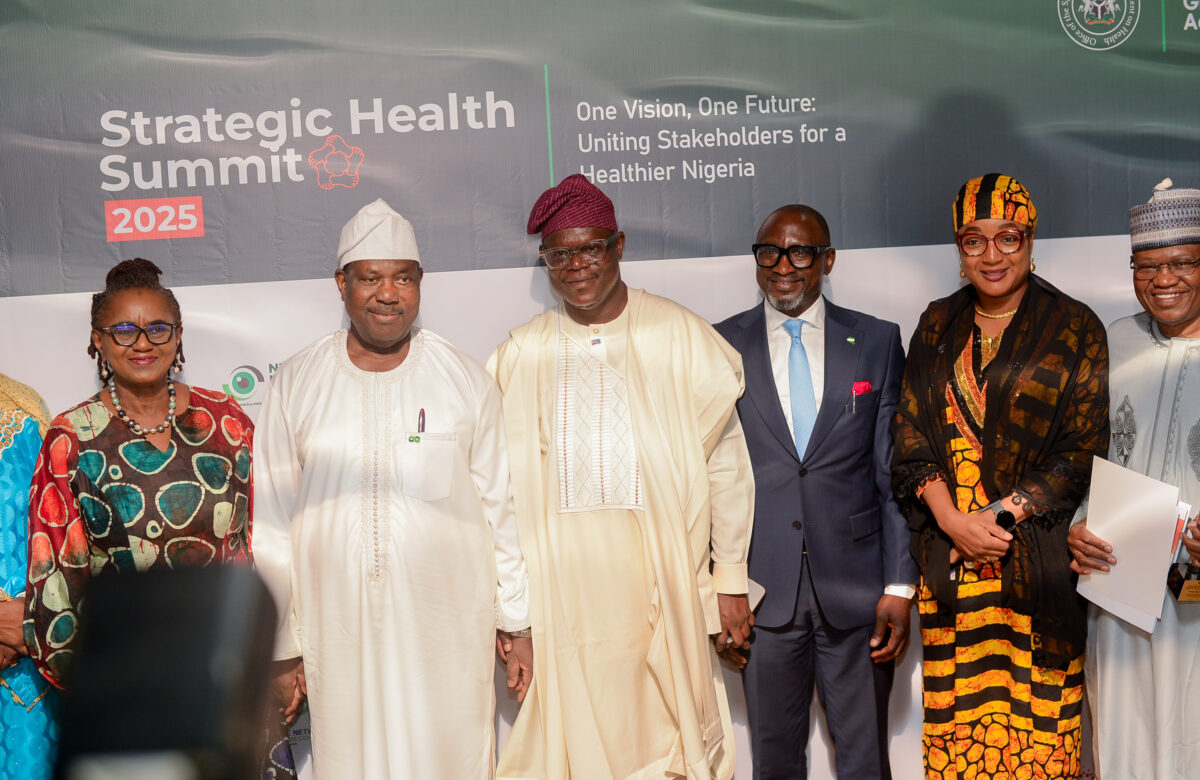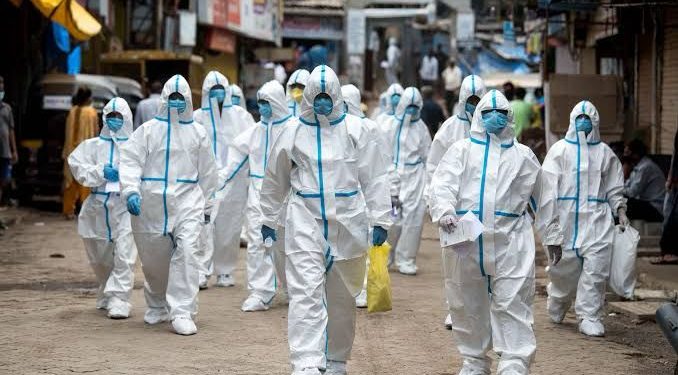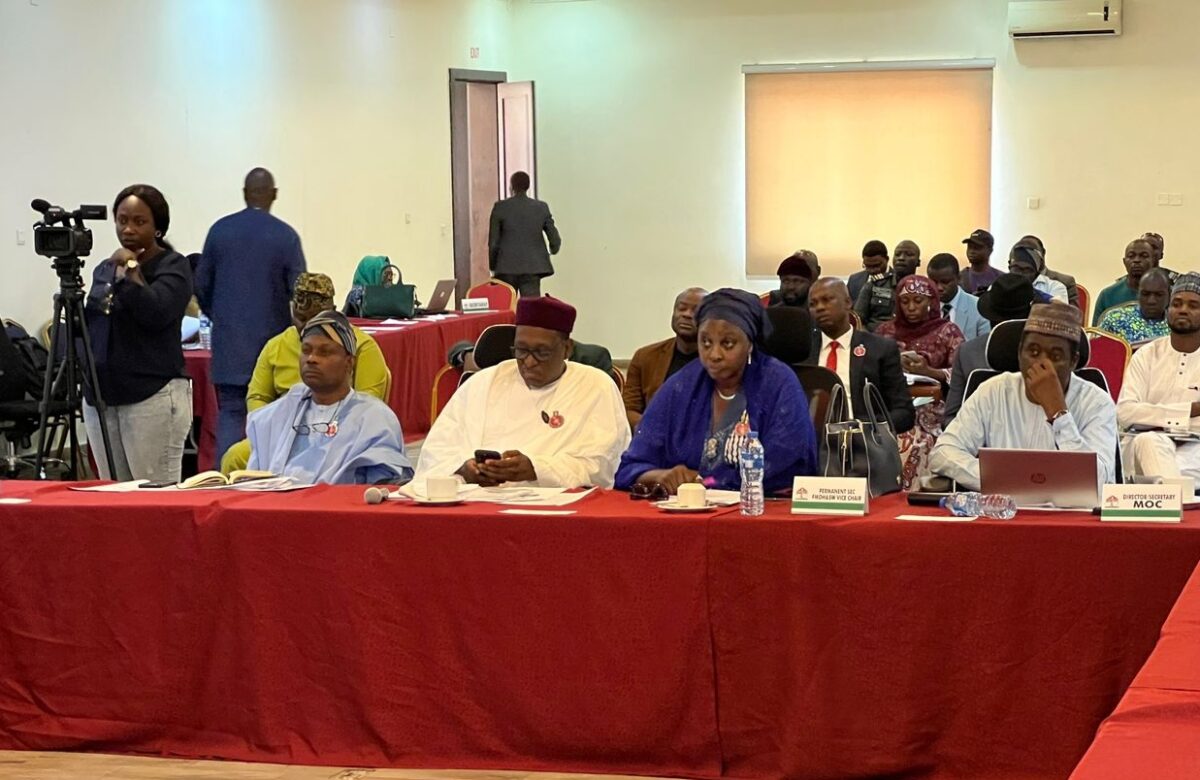
Health sector transformation boosts life expectancy in Gombe
- Health SectorHuman Capital Development (HCD)Infrastructure
- No Comment
- 331

Governance in health is being increasingly regarded as a salient theme on the development agenda. Leadership and governance in building a health system involve ensuring that strategic policy frameworks exist and are combined with effective oversight, coalition-building, regulation, attention to system design and accountability.
The Health System consists of all organizations, institutions, resources and people whose primary purpose is to improve the health of the people. Therefore, for a health system to function well, it needs staff, funds, information, supplies, transport, communications and overall guidance and direction. These are collectively referred to as the health system building blocks. Strengthening health systems thus means addressing key constraints in each of these areas.
A decayed and poorly functional health system owing to years of neglect of this very important sector by past administrations was inherited by the Muhammadu Inuwa Yahaya-led administration in 2019. Hence, the governor a state of emergency in the sector upon assuming office and set up a comprehensive agenda for the holistic
overhaul of the system.
Starting with service delivery as a key pillar entails making available the needed health services for people to access. This includes but not limited to the availability and distribution of health facilities (physical infrastructure) for service delivery, availability of needed equipment including beds, laboratories, adequate rooms for key services such as child birth, family planning, ante-natal consultation etc.
In order to prepare the system to be able to provide the needed services to the people, the government accomplished the following within two years: Complete renovation and upgrading of one public health centre (PHC) in each of the 114 wards of the state. Each of the PHCs was thoroughly renovated, provided with basic equipment, 24-hour light through the installation of solar power system across all the facilities and drilling of boreholes to ensure availability of uninterrupted water supply critical for quality health service delivery.
Then government embarked on the upgrading of the state specialist hospital including the installation of relevant equipment that were hitherto lacking such as Xrays and Ultrasound machines, ECG, Echo, Endoscopy and equipping of the dialysis centre constructed by the past administration but left unequipped.
In addition to that, one general hospital in each of the three senatorial zones was upgraded in order to make available to the people specialized services and reduce the burden on the state specialist hospital. The general hospital in Kumo is being completely reconstructed while those of Kaltungo and Bajoga are undergoing a state-of-the-art transformation. Other cottage hospitals/health clinics are also gradually being renovated and upgraded such as the cottage hospitals in Mallam Sidi, Bojude and Kuri as well as the General Hospital in Nafada.
The government has also embarked on the construction of a cottage hospital in Filiya, Shongom Local Government Area, the only local government area without any secondary health facility in the state. Furthermore, the State Government has established a 12-bed Intensive Care Unit (ICU) at the SSH, Gombe.
Human Resource is as critical as the service delivery pillar in the provision of health services to the people. It entails making available all the needed manpower to man the clinics and hospitals. It includes the doctors, nurses, midwives, radiographers, physiotherapists, laboratory scientists, community health workers etc.
The major strides recorded by this administration under this pillar are as follows:
Ensuring the commencement of housemanship at the specialist hospital where at least 30 young doctors have been engaged to undergo their internship training. This was a strategic move considering the fact that the housemanship quarters located at the specialist hospital was abandoned for over 20 years. Its construction started in 1999 and all previous governments abandoned the project. The successful completion of the quarters in addition to the employment of specialist consultants enabled the state to secure accreditation to commence this programme. With this singular achievement, it means having at least 30 doctors every year undergo their training at the hospital thereby boosting the human resource availability at the facility.
Employment of consultants and senior registrars is also significant. For the first time in the history of the state, there are close to 20 specialist consultants working at the state specialist hospital. Before the coming of this administration, there were only two or three consultants. This was made possible because of the governor’s approval of the upward review of consultant’s salary in the state. This has made consultants in the state to earn more than their colleagues at the Federal Teaching Hospital. This has greatly resulted in drawing specialists to the state civil service.
The state government also secured accreditation to commence residency training in Obstetrics/Gynecology and Family Medicine. Securing this accreditation would not have been possible if the necessary infrastructure, equipment and consultants are not available. With this now, the state will attract doctors from all over the country to come for specialist training in these fields of medicine thereby significantly increasing the available manpower to provide services.
The deployment of 147 nurses/midwives to all the 114 renovated PHCs in the state has been quite revolutionary in the state. This move has made available at least one nurse/midwife at all the PHCs located in the various wards of the state and drastically reduced the referral rate from the PHCs as well as reduced the incidence of maternal deaths associated with pregnancy and childhood morbidity/mortality.
For the first time in the history of the state, the NPHCDA engaged not less than 15 Youths Corps doctors and posted them to the major PHCs across the state. This singular effort has multiplier effects. Apart from making available doctors at the grassroots level, these doctors will also build the capacity of the existing health workers in their areas of assignment. This will ensure the provision of quality service to the people. In addition, engagement of laboratory and pharmacy technicians to provide services at the PHCs and construction of a new school of nursing will significantly boost the school’s production capacity thereby increasing the availability of nurses and midwives in the state. The new school has a 640-student capacity as against the current 150 students.
Critical to all the above is the requisite financing which aims to ensure that all people can access health services without suffering catastrophic expenditure. The result has been very positive in the sense that for the first time in over 10 years, the state has consistently maintained its budgetary allocation to health at two digits nearing the Abuja Declaration of 15%. This has improved from 12% in 2020, 13% in 2021 and 14% in 2022. This means increased funding to revitalize this sector which was neglected and left comatose by the past administrations.
The state government further established the State Contributory Health Scheme (GoHealth) to ensure all residents of the state can access quality health services without suffering financial hardship. So far, the state civil servants have been enrolled into the scheme where the individual employee contributes 3.5% of his salary and the government also contributes same percentage to take care of his or her needs and that of his family. Over 300,000 people are expected to be protected from financial hardship associated with huge medical bills under the formal sector programme.
Press Release
https://www.premiumtimesng.com/promoted/512895-health-sector-transformation-boosts-life-expectancy-in-gombe.html





